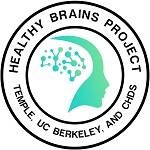Current Research
Healthy Brains project

This National Institute of Mental Health (NIMH) R01 grant-funded study will investigate how pre and postnatal factors influence clinical, cognitive, and neural characteristics in middle-age offspring. In doing so, we have the potential to answer important questions about how prenatal events influence long-term offspring outcomes. With Lauren Ellman as the PI, this study will be performed in collaboration with Ann Kring and Mark D’Esposito from the University of California Berkeley, Barbara Cohn from the Public Health Institute, and Temple’s Lauren Alloy, Thomas Olino, and Ingrid Olson.
MAPstudy: A mental health screening instrument development study

This National Institute of Mental Health (NIMH) funded R-01 grant (Ellman PI and Temple University the Coordinating Site) will recruit 12,000 adolescent and young adult participants across 3 sites (Chicago, Philadelphia, and Baltimore) with the aim of developing a screening tool designed to identify non help-seeking community youth who may benefit from further attention by a mental health professional. Most studies that attempt to identify who is at risk for developing mental health problems focus entirely on help-seeking individuals, but by the time they come into a clinic, it is often quite late. In the first study of its kind, we will develop a short screener, designed for variety of primary care or educational settings, that will alert youth, parents and practitioners that more in-depth clinical assessments might be required. This study is one-third of a multi-site, multiple PI collaboration — with Vijay Mittal at Northwestern University and Jason Schiffman at UMBC — on which Lauren Ellman is the coordinating PI.
Computerized Assessment of Psychosis Risk (CAPR)
This study aims to develop a new psychosis symptom domain sensitive (PSDS) battery risk calculator for conversion to psychosis, prioritizing tasks that show correlations with the symptoms that define psychosis and, relatedly, that are tied to the neurobiological systems and computational mechanisms implicated in these symptoms. To promote accessibility, we utilize inexpensive behavioral tasks that could be administered over the internet; this will set the stage for later research testing widespread screening in help-seeking as well as non-help seeking populations, that would identify those most in need of in-depth assessment. Before this can be accomplished, however, it is necessary to determine which tasks are effective for predicting illness course and how this strategy compares to the first-generation prediction methods. This project is part of a collaborative R-01 with five other data collection sites, for which Lauren Ellman, Vijay Mittal, Scott Woods, Phil Corlett, Greg Strauss, and James Gold are the MPIs.
The Psychosis-Risk Outcomes Network (ProNET)
This is a standardized 27-site international effort to deconstruct clinical high risk (CHR) for psychosis heterogeneity with state-of-the-art multimodal methods and map clinically relevant trajectories and outcomes of the CHR syndrome. We will collect and quantify multi-modal prognostic or predictive biomarkers that span psychopathology and cognition, MR-based imaging, electrophysiology (EEG), genetics, fluid-based analytes, natural speech/language data, and digital phenotyping and passive/ecological momentary assessments. The end-goal of the effort is to develop a suite of predictive biomarkers that inform personalized treatment decisions, and enable future clinical trials. Scott Woods, Carrie Bearden, and John Kane are the MPIs for this study and Lauren Ellman is the Temple University site PI.
Neurobiological markers of psychosis risk
In collaboration with Vishnu Murty (PI), this study seeks to characterize differences in brain structure and function across individuals at low and high clinical risk for developing psychosis, to identify neurocognitive phenotypes that may contribute to early detection and prevention of psychotic disorders.
Linking Neighborhood and Individual ACEs to Breast Cancer
This study, funded by the California Breast Cancer Research Program and awarded to Barbara A. Cohn at Child Health and Development Studies, tests the hypothesis that adverse childhood experiences (ACEs) are associated with 1) early age at menarche, a risk factor for breast cancer and linked to the more aggressive forms of estrogen receptor negative (ER-) breast cancer that is more prevalent in African Americans, 2) greater breast density in midlife, a strong risk factor for breast cancer also associated with more aggressive disease and more prevalent in African Americans, and 3) incident breast cancer before the age of 55, known to be more aggressive and more common in African Americans. Temple has received a subaward on this grant, for which Lauren Ellman is the site PI.
Obstetric complications and risk of schizophrenia
These studies investigate environmental and genetic risk factors for schizophrenia using large pregnancy samples from Finland, California, and Philadelphia. The primary goals of these studies are to investigate pre- and perinatal risk factors for schizophrenia.
Fetal exposure to maternal stress and inflammation: Effects on neurodevelopment
This National Institute of Mental Health (NIMH) R01 grant-funded study investigates how maternal stress and inflammation during pregnancy as well as fetal hypoxia (lack of oxygen to the fetus) influence the risk of adolescent depression in offspring. We also seek to map trajectories of how these prenatal risk factors result in a cascade of events, leading to altered developmental trajectories in emotional, cognitive, and behavioral outcomes during childhood and subsequent depression during adolescence. This study analyzes maternal interviews and archived sera collected during the 1950s and 1960s within the Kaiser Hospital network in the vicinity of Berkeley, California.